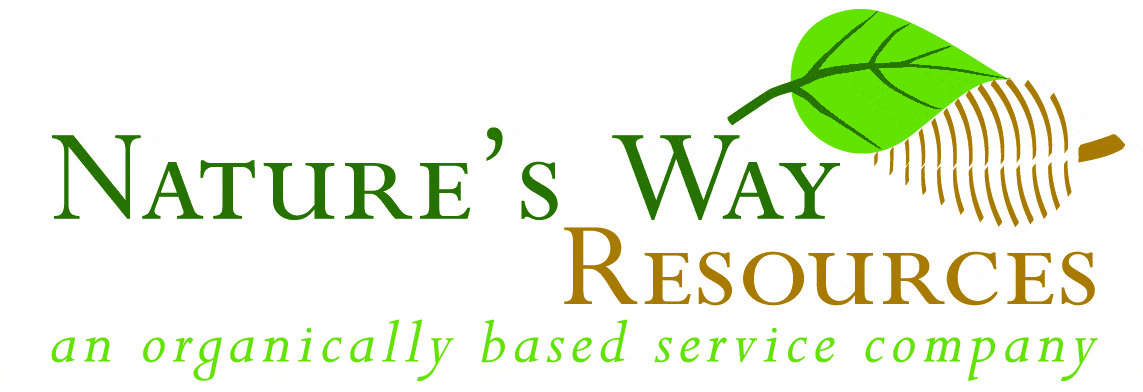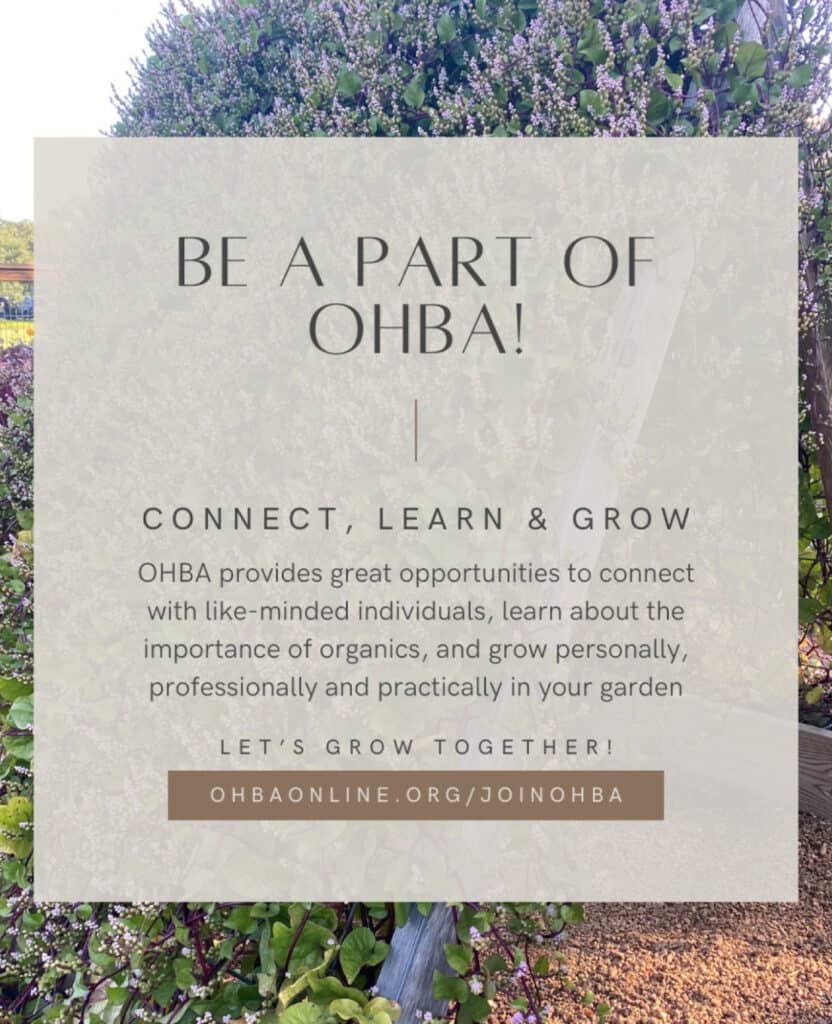- The Organic philosophies believes that one should work within and with the laws of nature (God) not fight against nature as we have been taught by the synthetic chemical industry. Traditionalists (synthetic chemicals supporters) fight nature (paddle upstream) while the organic philosophy works with nature.
- Organic growers have the philosophy that plants growing in their preferred environment and in soil balanced to suit their needs will be healthy, and healthy plants do not attract destructive insects or disease.
- Organic growers have shown that nature will tend to correct and cleanse itself if we stop pumping harmful chemicals into the environment.
- Organic growers have proved that a balanced ecology without synthetic chemicals will have larger, better, and healthier quality crops and flowers.
- Organic growers focus on prevention of problems through proper soil management and choice of plant material.
- Organic growers copy nature, we never grow plants without animals from microorganisms like fungi and bacteria to macroorganisms like earthworms and frogs. In nature (organic) with very few exceptions, plants have minimal levels of plant disease or insect problems.
- In organics it is remembered that the process of growth and the process of decay balance one another. We want leaves, grass, and mulch to decay.
- “The most fascinating aspect of organics is this–it works better that the chemical and artificial alternatives! The fact that organic techniques and products help us stop ruining our planet is a welcome side benefit.” H. Garrett, Harmony With The Environment, Acres USA, June 1993
- Costs less – less work – more effective – healthier – safer
- Organic gardeners look at how nature (God) works and at the role or function that each lifeform has. Animals (often considered pests) such as mice, moles, and shrews dig burrows that help aerate the soil, they take organic matter deep into the ground for nests that will eventually decay and feed plant roots, they provide a food source for hawks, owls and others (helps to keep them around) and they in turn help to control poisonous snakes, etc. They along with lizards and toads eat roaches and many other pest insects.
SIX BASIC RULES TO GET STARTED
1) Use soil that is balanced in minerals
2) Use soil that is rich in organic matter (humus)
3) Use well adapted varieties of plants
4) Use soil rich in beneficial life
5) Plant in their preferred season
6) Recognize troublesome insects and diseases as only symptoms of a deeper problem.
SOIL NUTRITION – feed the soil and it will feed your plants (and you)
- Take care of the soil! The soil, like everything else in the environment is fragile and difficult to repair once damaged. Use lots of compost and keep soil protected by a good thick mulch layer.
- Use natural organic fertilizers based on soil needs and requirements, not timetables supplied by the manufacturers of chemicals. Studies have shown that synthetic fertilizers, especially with high nitrogen, stimulate plants to produce rapid weak growth that attracts insects and disease (it also requires much more water for the plant to survive)
- Organic fertilizers nourish AND improve the soil. Feeding your plants nothing but nitrogen, phosphorus and potassium is like feeding your children nothing but cookies. Plants need a balance of nutrients; macro, minor, and trace. Research at Cornell University has shown than corn fertilized with cow manure suffered less corn rootworm damage than control plots fertilized with synthetic chemical fertilizers. Similar research in Minnesota showed that Alfalfa fertilized with cow manure gave larger yields than control plots fertilized with synthetic chemical fertilizers. Synthetic fertilizers create weak growth that actually attracts pest insects (example – lace bugs on azaleas).
- Biological soil stimulants, like Medina, are made from the fermentation of numerous organic materials and designed to stimulate microbial activity (similar function as compost).
- Use mineral dusts (granite, lava, greensand, etc.) to feed the soil. Research at Rutgers University indicates that organically grown foods taste better than those using synthetic chemicals. Flavor is related to the available trace minerals in the soil. Also the function of a plants immune system is directly liked to trace minerals.
- Use fish and seaweed based fertilizers as they not only contain minerals, but enzymes, vitamins and growth hormones that are good for the soil.
- Organic fertilizers, mineral dusts, compost and mulches encourage earthworms (sometimes referred to as a gardener’s best friend). Researchers have found that bacteria living in the guts of worms breakdown (detoxify) many hazardous chemicals such as hexachlorocyclohexane (HCH) and clean the soil.
- “As gardeners and farmers continue with natural organic methods of soil building, their plants seemed to develop immunity to the pests and diseases they were having before, and their farm animals if left to natural selections, even preferred to eat plants grown on organically enriched soils”. Malcolm Beck, The Garden-Ville Method
PLANTS AND FLOWERS
- An ecosystem and its parts operate under certain natural laws. These laws operate without fail, and if they are broken, a penalty results, just as when a criminal is punished for breaking a man-made law. If we understand more about natural systems and how they operate, we can often eliminate, or better yet avoid problems (which are the penalty of broken laws). Example: If we over stimulate a plant to grow with synthetic fertilizer it produces weak tissues that attract disease and pests.
- Organic gardeners use native plants adaptive to the area’s soils, pests, diseases and climate (i.e. do not have to use expensive and dangerous synthetic chemicals to keep them alive).
- Organic gardeners choose the right plant for a given location with consideration to establishing bio-diversity and a healthy habitat for birds, lizards, frogs, beneficial insects and others that control pests in a garden. Remember that nature is a series of checks and balances. For instance the Fire Ant is not all bad as it eats chiggers, fleas, ticks, termites, and many other insect pests.
- Scientists have learned that in nature, plants and animals live in communities of different species called “Guilds” and are inter-dependent for good health. Permaculture Gardening, The New Garden Journal, Jan./Feb. 1995
- In nature there is many types of companion plantings, for example blackberries act as hosts to a parasite of the grape leafhopper (extremely destructive of grape vines) hence the plantings of blackberries near grapes encourages a natural control. Similarly, spurry plays host to parasites and predators that control the cabbage worms. Greater diversity of native plants encourages natural controls.
- When attacked by insects, plants emit a chemical “scream” that summons predators to kill the invading pests. For example researchers have identified the elaborate defense system in corn plants whose leaves are chewed by caterpillars. Attracted by chemical cues from the injured plants, wasps lay their eggs in the larvae or caterpillar which then die in the ensuing days as the wasp offspring eat the host larvae. USDA, Gainesville Florida
- Avoid public water when possible. Tap water from most public water systems contains chlorine. Chlorine can stunt or kill needed bacteria living in the soil. Chlorine will stunt or kill many plant species. Other effects on plants will cause leaves to turn yellow on some species. Fluorine (Fluoride) is another chemical frequently added to water systems that has been found extremely dangerous. The E.P.A. has recently re-classified the toxicity of fluorine to be between lead and arsenic in danger and risk. Even very low concentrations (1 part per million) will stunt, kill, or weaken the immune system of many plant species.
- Organic Gardeners look for the cause of the problem not treat symptoms. Most people in the green industry are hardworking honest people with the best of intentions for the customer…however, the chemical industry has taught us to treat the symptoms rather than the problems (this ensures lots of repeat business – since problems keep reoccurring)
7 Tenets Of Organic Gardening
-
- Protect the environment, minimize pollution, promote health and optimize biological productivity.
- Replenish and maintain long-term soil fertility by providing optimal conditions for soil biological activity.
- Maintain diversity within the farming system and its surroundings and protect and develop plant and wildlife habitats.
- Use materials and resources to the greatest extent possible within the farm or yard as part of a regionally organized agricultural system.
- Provide attentive care that meets both health and behavioral requirements of farm animals.
- Maintain the integrity and nutritional value of organic food through processing to consumption
- Develop new technologies with consideration for their long range social and ecological impact.
From: Texas Organic News, Vol. II, No.2
How to Make the Transition to Organic Gardening
I. WHY ORGANIC
- A. Conventional agriculture doesn’t work…500 farmers per week going bankrupt!
- B. If we paid for the cost of the environmental and health damage, Harvard University estimates that a hamburger would be $500. We have to stop robbing from our children’s future
- C. Air, soil and water pollution are directly related health problems and crime
D. Works Better, Lower Cost, Tastes Better and Higher Nutrition
II. STOP USING SYNTHETIC CHEMICALS
- A. Pesticides, Fungicides, Herbicides, etc.
- DDT and other organo phosphates = cancer
- – organo chlorides = birth defects
- B. Synthetic Fertilizers
- attract pests
- weaken plants
- pollute streams (Gulf of Mexico)
- unregulated industry (toxic materials)
- actually cost more to use
- lawns and gardens require more water
- are allowed to contain mercury, arsenic, cadmium, lead, etc. as fillers.
III. Six Basic organic rules:
1) Use adapted varieties
2) Plant in preferred season
3) Use soil balanced in minerals
4) Use soil rich in organic matter-humus
5) Use soil rich in beneficial life
6) Recognize troublesome insects and diseases as symptoms of other problems rather than the problem
IV. Improve Soil Health (Soil Ecology)
Healthy Soil = Healthy Plants
A. Organic Matter
– use composts
– use native mulches (avoid barks and colored wood)
B. Mineral Dusts
C. Organic Fertilizers
– pellets
– fish emulsion and seaweed
– blood meal, bone meal, cottonseed or alfalfa meal/pellets
D. Use and see weeds as diagnostic tools rather than pests
E. Promote a healthy and productive soil food web
V. BENEFICIAL INSECTS
A. Many types
B. How to Attract – use native and open pollinated species (avoid hybrids)
VI. BIODIVERSITY
A. Plants
B. Well adapted plants to soil and climate (native)
C. Companion planting
VII. RESOURCES
A. Urban Harvest (Bob Randall, PhD) (713) 880-5542
B. Magazines
C. Books
D. See Sources/resources handout

